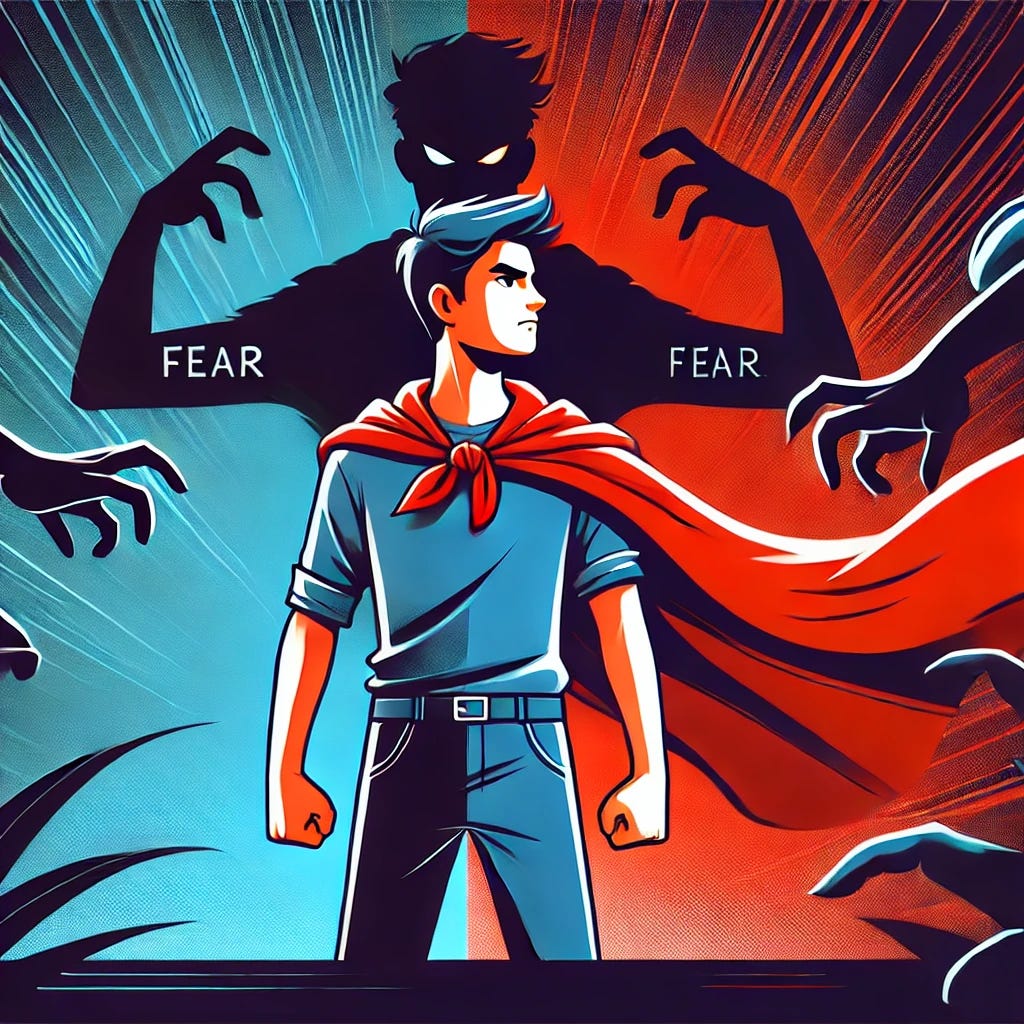Mind Candy is a newsletter on practical philosophy and human flourishment—aka how to live the “the good life.” Each month we tackle a new theme. This month we’re exploring fear.
This Week at a Glance:
This week, we explore the advice William James gave to himself in order to overcome his melancholy and once again embrace life.
By the time you finish this meditation, you’ll learn:
🍭 What William James’ philosophy on life was;
🍬 How James came to defeat his melancholy;
🍫 The trick James used delay to remove discomfort.
William James, one of the most influential psychologists and philosophers of the 19th century, suffered from severe melancholy or what we’d now refer to as clinical depression.
Looking at the life and work of James shows a man fighting inner demons by way of searching for answers.
Sometimes in life, we experience emotions and feelings that we simply do not know how to describe because we either lack knowledge or do not have proper language to express what is going on inside of us.
One solution to this is affect labeling and it is when we are able to finally put a name or phrase to what our experience is.
James spent much of his adult life looking for phrases and definitions to help define the plights he felt. He was strongly torn by determinism and its potential ramification to one’s life—namely, if events are predetermined and out of our control, is life worth living?1 If we are not free since everything is determined by previous events, many of which are outside of our control and experience, then what is this absurd existence we live? Why are we living it?Where is the meaning in it all?
James' solution was to fix his own soul, and he believed the correct process was in the study of the human mind and behavior. It was through these struggles and searches that James defined what would come to be known in philosophy as pragmatism, living one’s life and building one’s philosophy in ways that had “practical consequences” which in turn directly helped impact the individual's life.
His philosophical approach to life can be summed up simply in his quote:
“My thinking is first and last and always for the sake of my doing.”
Of course we will experience discontents. We will come up against scenarios we do not want to be in. We will be asked to perform tasks we do not want to do.
James had a solution for handling these scenarios, but it’s not a solution for the faint of heart:
Do things every day you do not want to do.
“Everybody should do at least two things each day that he hates to do, just for practice.”
Life is not made of pure freedom, it is a mashup of strife for existence, for survival, sprinkled in with bits of freedom and control for what we want.
If we go throughout life believing someone—or life in general—owes us something, we will be deeply disturbed and constantly fighting back misery.
But what James was recommending is understanding the discomforts of life and the tasks we’re required to do. There are always thing in our lives we fear, that we procrastinate on, that we would rather just flat-out reject.
But his point was when life is going well and we’re on an upswing, we should not shy away from the stuff we don’t want to do, we should instead lean into doing those things during times of comfort.
Whether it is a good day or a bad day, we should subject ourselves to performing two tasks we do not want to do. This not only builds character, it builds our will to survive, to push on when we don’t want to, to understand our need to do things we do not wish to do.
If we take our emotions and feelings out of the equation, if we force ourselves to do things we don’t want to do every day, then we set ourselves up for success by not only accomplishing work on good and bad days but also building a habit and strengthening our character in the process.
When we become accustomed to discomfort, we adapt, and suddenly, that discomfort is no longer a thorn in our side. Instead, it is just a part of life, something we’re accustomed to.
Life is incredibly difficult. It is filled with torments and setbacks, losses and pains, missed opportunities and displeasures.
But that is what life is.
It is experience. It is good and bad and ugly. It can raise you higher than the the moon and drop you to the depths of the ocean.
But throughout all of it, you get to experience life.
We cannot be afraid of it. We cannot shy away from it regardless of how much we want to. There is always a new day filled with new opportunities. And with those opportunities comes the understanding that life is worth living.
3-Bullet Summary:
William James suffered from a deep depression, what at the time was referred to as melancholy. In order to overcome this, James went searching for answers;
James created the philosophical framework of pragmatism as a way to deal with his melancholy. Pragmatism was partially born out of James’ belief in determinism and that we are limited on life’s outcomes due to a series of events outside of our control;
James advice to himself to provide stability to his melancholy was to perform two things each and every day he did not want to do.
Until next time,
D.A. DiGerolamo
We are a participant in the Amazon Services LLC Associates Program, an affiliate advertising program designed to provide a means for sites to earn advertising fees by advertising and linking to Amazon.com.
James also created a two-tiered system of free-will which I will not explore here









